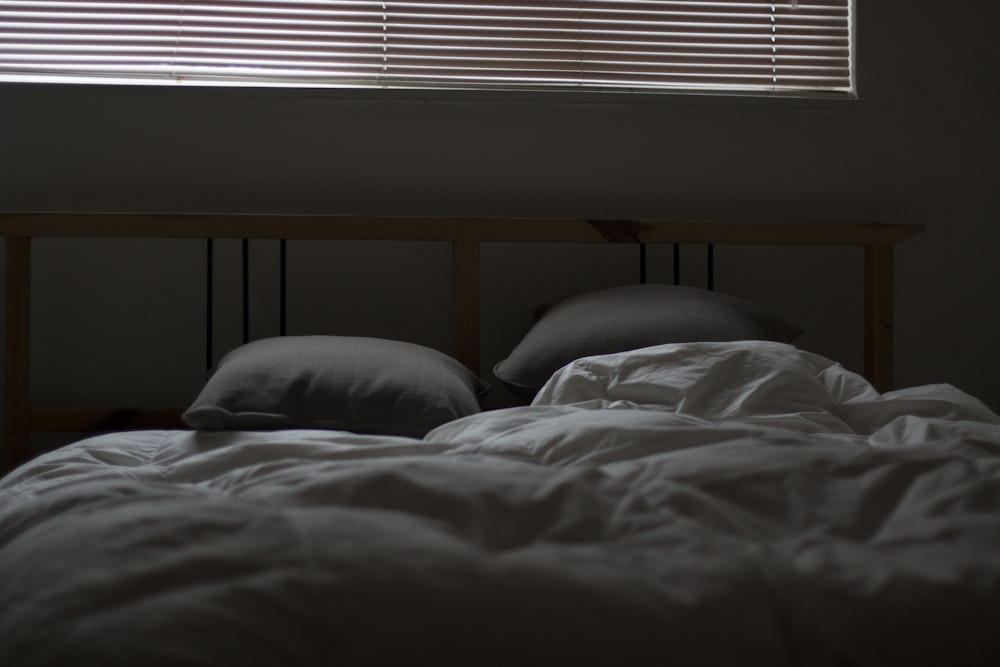We’ve all had those mornings when we wake up in a bad mood because we slept poorly the night before. A lack of sleep can negatively affect your mood, concentration, and more.
For people with obstructive sleep apnea, however, this isn’t just a periodic occurrence. It’s something that you may be dealing with practically every night. If a single night of poor sleep can hurt your mood and focus, it stands to reason that prolonged periods of poor sleep could be even worse.
And new research shows just how seriously untreated sleep apnea can affect your well-being, having a direct impact on your risk for cognitive decline and depression.
How Sleep Apnea Affects Your Mental Health

A recent study from China further cemented the link between sleep apnea and mental health — and specifically, depression. The study used self-reported health information from over 9,000 people.
According to Sleepopolis, “The results showed that people with self-reported sleep apnea were more than two times more likely to have symptoms of depression. When researchers removed any factors that could cloud the results, they still found people with sleep apnea had a 136 percent higher chance of experiencing depressive symptoms than other people. Also, the researchers found that the more severe the sleep apnea, the higher the risk of depressive symptoms. Consequently, people with milder sleep apnea had a lower risk.”
Because of this, the researchers concluded that sleep apnea can increase the risk of developing depression, and that individuals who have the sleep disorder should also receive mental health screenings. Of course, promptly diagnosing and managing sleep apnea may also be able to help reduce the risk of depression linked to poor sleep.
New Study Shows Sleep Apnea’s Influence on Cognitive Function

Another recent study adds more fuel to the fire of the link between sleep apnea and various cognitive problems. This study looked at men who had recently been diagnosed with obstructive sleep apnea. They did not have other conditions like hypertension or type 2 diabetes that could also affect their cognitive performance.
The men in the study were asked to perform a variety of cognitive tests, and their results were compared to a control group that did not have obstructive sleep apnea. According to Science Alert, “the men with OSA scored lower for sustained attention, executive functioning, short-term visual recognition memory, and social and emotion recognition than the control group. The more severe the OSA, the worse the scores compared to the control group.”
What made this study especially notable was the fact that the men in the study didn’t have any other health issues that could have contributed to their poor cognitive performance. The study showed that sleep apnea itself can directly interfere with these activities.
The researchers theorize that this is because of fragmented sleep, brain inflammation, and blood flow and oxygen level changes, all related to sleep apnea.
What This Means For You

Both studies examined sleep apnea’s possible influence on complex mental health issues. While cognitive function and depression can be influenced by a wide variety of factors, the new research makes it clear that obstructive sleep apnea can have a direct negative effect in and of itself.
For people who are experiencing depression, it may be worthwhile to look at your sleep quality. If you have symptoms of depression such as loss of interest in your hobbies, low appetite, poor mood, negative self-talk, and poor sleep habits, you should probably visit a specialist to get to the root of the problem.
Take stock of your sleep quality when assessing your mental health. Common symptoms of sleep apnea include waking up with a dry mouth or headache, feeling excessively fatigued during the day, loud snoring, and experiencing pauses in breathing followed by gasping for breath during the night. Your bed partner may inform you of some of these symptoms disrupting their own sleep.
If your symptoms indicate that you are struggling with sleep apnea or another sleep disorder, you should schedule a sleep study. During a sleep study, specialists monitor your heart rate, breathing rate, and other vital signs to determine whether you have sleep apnea and how severe it is.
If you have sleep apnea, your specialist will likely prescribe a CPAP machine. A CPAP machine provides a steady flow of pressurized air (at a level prescribed based on your condition) throughout the night. This keeps your airways from collapsing to prevent interruptions to breathing and sleep.
By directly addressing the cause of your disrupted sleep, using a CPAP machine will help you manage sleep apnea and reduce your risk for cognitive decline and depression. As you use a CPAP machine and take other steps to improve your sleep quality (like following a consistent bedtime routine and avoiding blue light exposure before bed), you’ll enjoy better sleep and improved mental health.
Get a CPAP Machine to Improve Your Mental Well-Being
As these recent studies reveal, managing obstructive sleep apnea won’t just help you feel better rested. Quality sleep protects your mental and emotional well-being, reducing your risk for cognitive decline, depression, and other severe issues. And the best way to manage sleep apnea is with a CPAP machine.
While CPAP machines and accessories can be expensive (particularly without health insurance), Help Medical Supplies can make a difference. With a wide selection of equipment from top brands at discounted prices, we make it easy to get the equipment you need at a price you can afford. Free shipping and available financing on select orders further ensures you can rest easy as you take steps to improve your sleep.

